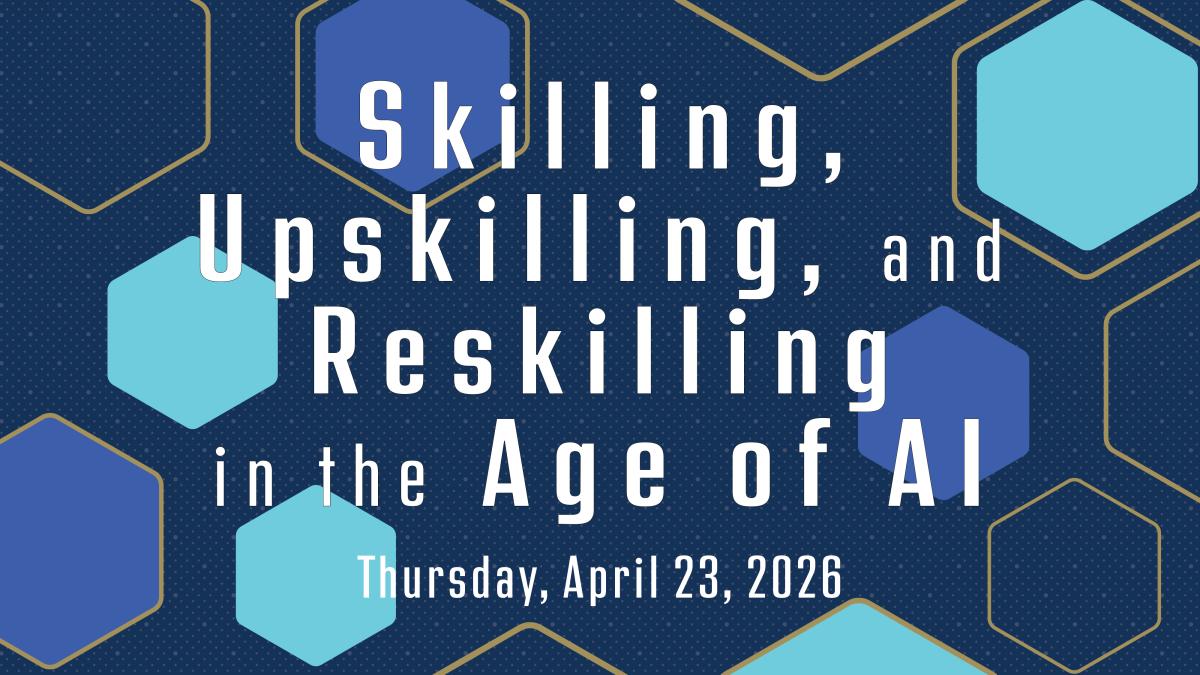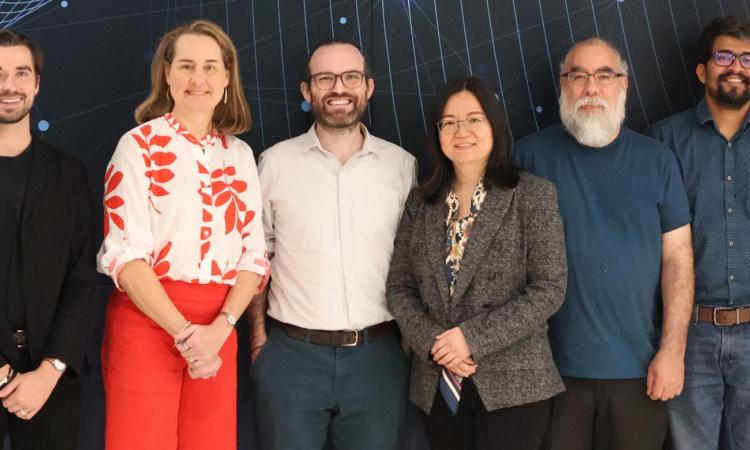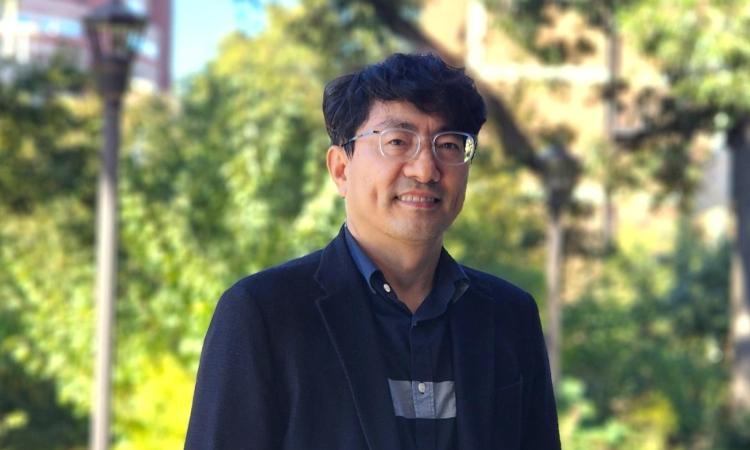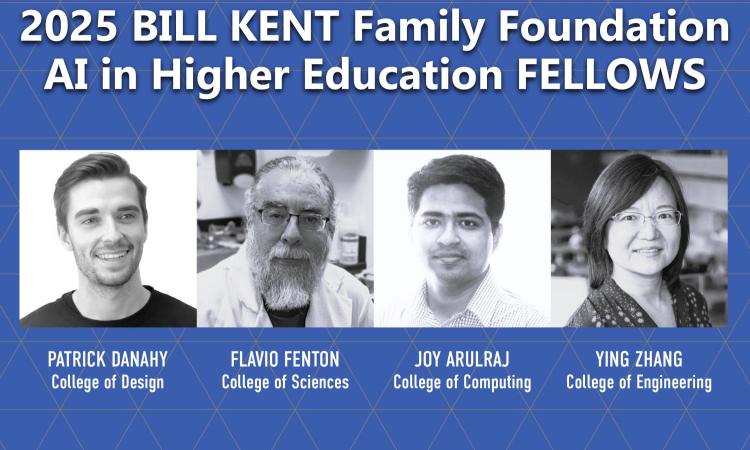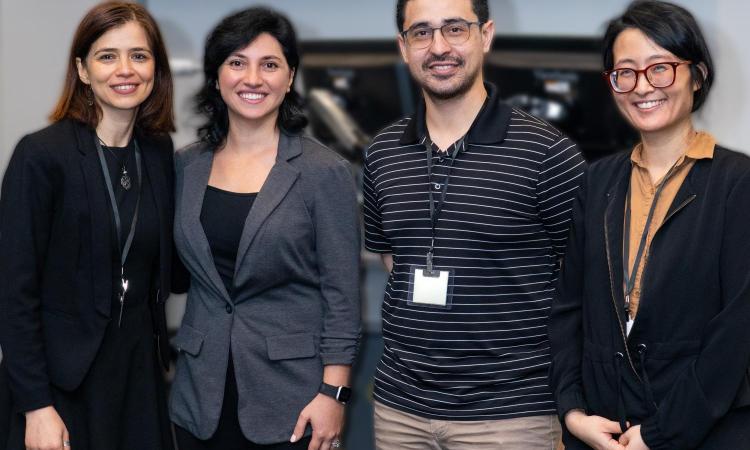
Established in 2010, the Center for 21st Century Universities (C21U) is Georgia Tech's living laboratory for fundamental educational change.
Serving as a research arm of the College of Lifetime Learning, C21U's technologists and researchers support the Institute's innovation mission by pushing the boundaries of what is already done in higher education to bring learners the most impactful resources and technologies.
We serve as a nexus of collaboration and communication and a catalyst for innovation, bringing together an array of internal and external partners across various disciplines.
Through a sustained and systemic program of research, experimentation, design, prototyping, and implementation, C21U serves the Institute in thought leadership, educational technology design, community building, and support of Georgia Tech stakeholders of all ages.
Save the Date!
The 2026 C21U symposium, Skilling, Upskilling, and Reskilling in the Age of AI, features a keynote address by Magdy Karam, chief learning officer for Microsoft Americas. This year’s event will convene leaders and innovators from across the learning ecosystem for a day of exploration, connection, and fresh thinking about the future of lifetime learning.
Featured Research
Letters of recommendation (LORs) provide valuable insights into candidates' capabilities and experiences beyond standardized test scores. However, reviewing these text-heavy materials is time-consuming and labor-intensive. To address this challenge and support the admission committee in providing feedback for students' professional growth, our study introduces LORI: LOR Insights, a novel AI-based detection tool for assessing leadership skills in LORs submitted by online master's program applicants.

Recent News
Building the Future of Online Learning Through AI and VR
Two research teams within the College of Lifetime Learning are exploring ways to integrate human–computer interaction technologies into online courses through Provost-funded projects. These projects introduce new approaches that aim to optimize learning at scale while also offering more tailored educational experiences.
From Ideas to Impact: Inside the First Months of the BKFF AI in Higher Education Fellowship
The Georgia Tech College of Lifetime Learning’s inaugural Bill Kent Family Foundation AI in Higher Education fellows are only a few months into their projects. Yet their work is already reshaping how artificial intelligence can support teaching, learning, and creative practice across the Institute and generating early models that can inform scalable learning systems across disciplines and learner populations.
Introducing Visiting Scholar Sanghyun Jang
C21U is excited to announce that Sanghyun Jang will join Georgia Tech as our visiting research scholar starting on October 20, 2025. He comes from South Korea, where he served as director of the Education Data Center at the Korea Education and Research Information Service (KERIS). For one year, he will be based in Atlanta, Georgia, to collaborate with C21U faculty and researchers on developing AI-based learning systems and leveraging educational data to improve student outcomes.
C21U Announces Inaugural Bill Kent AI in Higher Education Fellows
The Center for 21st Century Universities (C21U) has announced the inaugural cohort of Bill Kent Family Foundation AI in Higher Education Faculty Fellows for 2025–26. This C21U-led fellowship program supports faculty projects that explore innovative, ethical, and impactful uses of artificial intelligence in teaching and learning.
C21U Recognized with Best Paper Award at 2025 IEEE DEMOcon
We’re proud to announce that C21U’s paper, Leveraging Large Language Models to Detect and Summarize Cognitive Presence in Online Discussion Forums, was selected as one of five papers to receive the Best Paper Award at the 2025 IEEE Digital Education and MOOCs Conference (DEMOcon). This recognition highlights our work addressing a key challenge in online education: assessing the quality of student engagement in asynchronous discussion forums at scale.
